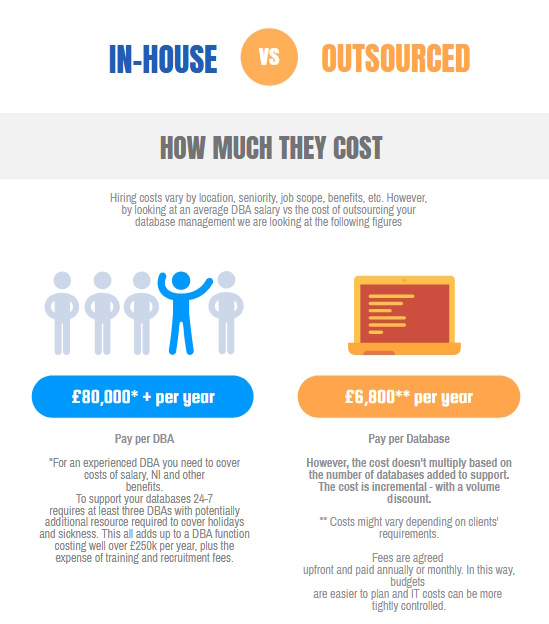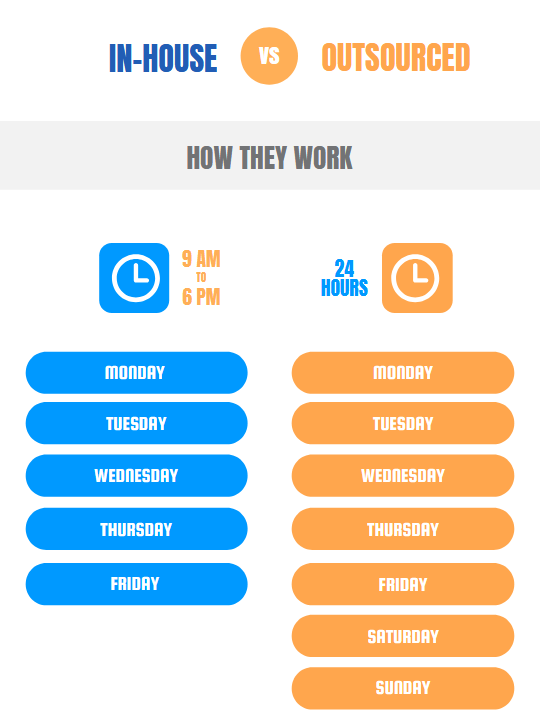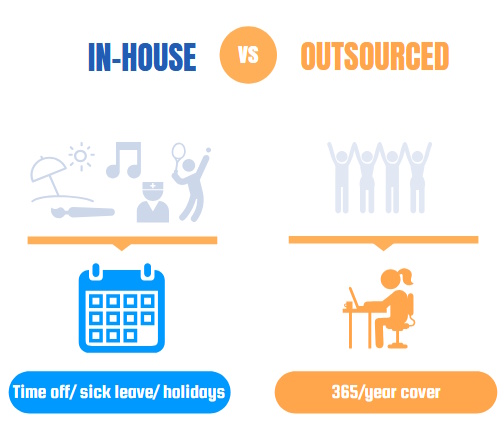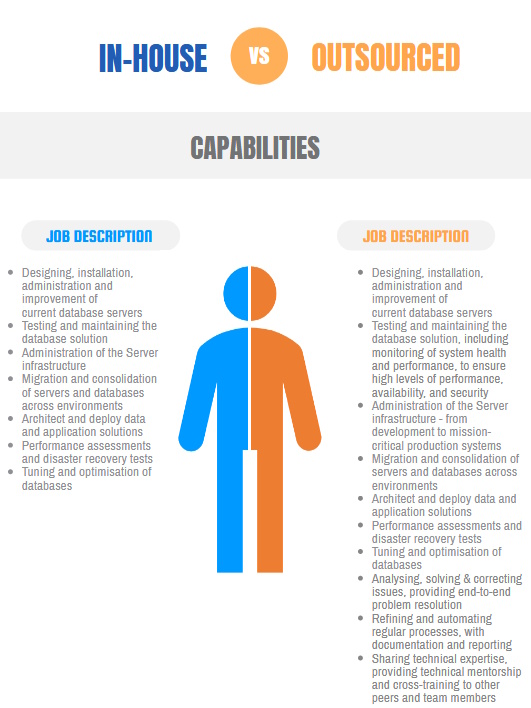WellData is the UK’s leading DBA managed service provider, offering a reliable, secure and low-cost way of enhancing database performance without employing expensive DBAs. Founded in 1999, we help businesses of all sizes to increase the availability, reliability and security of their databases.
Get a free consultation and outsource DBA functions today.
Managing databases can be a costly and challenging business. Keeping them running requires careful, round the-clock attention from highly paid technical staff. They are prone to breakdown from hardware, network or human failure, cyber-attacks and power outages.
Reliable and experienced DBAs are costly to hire, train and retain.
Businesses can’t afford to compromise. Database failure can result in serious business-wide impact, causing operational losses, reputational damage, non-compliance fines, data-security breaches and customer dissatisfaction.
More and more organisations are discovering that outsourcing their DBA function to an expert third-party makes good business sense. DBA outsourcing allows you to maximise your databases’ reliability, availability and security, while making significant savings in time, cost and operational effort.

A typical experienced DBA could easily cost over £80k per annum in salary, NI and other benefits.
However, each DBA works for an average of 220 days, or 1760 working hours, per year (allowing for some sickness-breaks and holiday).
This represents a mere 20% of the round-the-clock, 365-day cover your databases need.
To support your databases 24-7 requires at least three DBAs with potentially additional resource required to cover holidays and sickness.
This all adds up to a DBA function costing well over £250k per year, plus the expense of training and recruitment fees.
Outsourcing to database management specialists removes most or all the costs of employing your own DBAs.
Instead, the fees you pay are a fraction of the expense of managing your databases in-house.
Fees are agreed upfront and paid annually or monthly.
Budgets are easier to plan and your IT costs can be more tightly controlled.

Maintaining around-the-clock support isn’t easy, especially if your DBAs fall sick or take unplanned absence.
Any gaps in support can be difficult and expensive to fill at short notice.
Outsourcing to a DBA managed service provider gives you support from a multi-skilled team whenever you need it.
Unlike your in-house staff, they don’t suffer from cover-gaps due to holidays, parental leave or sickness.
They are on standby 24/7/365, ready to react instantly within response-times specified in your SLAs.

This contractually obligates your supplier to provide the cover you need and guarantees you fast problem resolution.

DBAs are often tied up with responding to day-to-day needs and may struggle to update themselves with the newest technologies.
Smaller in-house teams often lack the skills required to support the latest database functionalities or plan and implement specific projects.
Also, as businesses grow and evolve, so the technical needs of their databases are likely to change.
This imposes new technical challenges for internal DBAs who may not be up to speed with the relevant knowledge and training.
Outsource to DBA specialists and you access a deep pool of technical knowhow, on hand whenever you need it.
You have well-qualified database experts at your disposal, all fully trained and familiar with a broad range of database technologies.
This inflates the cost of finding and onboarding replacement staff and providing them with the necessary skills training.
Frequent turnover in DBA personnel and the resulting lack of continuity also make it more difficult for in depth knowledge to be transferred from person to person and retained within your organisation.
This can be offset by outsourcing to a DBA specialist with high staff retention.
This gives you the advantage of continuous service from a team of DBAs, each able to grow a longstanding knowledge of your systems and needs.
Managing your DBAs’ recruitment, availability and skills development also takes up valuable time and resources.
Handing day-to-day database management to a third party frees up quality time for you and your IT people to focus on the bigger picture and concentrate on tackling more strategic issues.
And it helps your technical staff to become more productive and motivated.
Outsourced DBA specialists, on the other hand, can take a more objective perspective by focusing on preventative management, reviewing and identifying how systems can be improved and optimised to minimise the risk of downtime.
By monitoring your databases on an ongoing basis, they can quickly spot and remedy issues before they cause breakdowns.
This proactive ‘fix-before-fail’ approach gives your databases maximum availability and cuts the time and expense of fire-fighting unforeseen incidents.
Every business experiences highs and lows in the level of database support required.
Sometimes your needs are relatively modest.
At others, your DBAs are stretched to the limit.
Planning your resources to meet these swings in demand can be problematic.
Get it wrong and you could end up with an under-used support team, or DBAs overloaded with work and pushed to breaking-point.
Outsourcing your database management lets you specify the service levels you require and guarantee them in contractual SLAs.
This gives you the peace of mind that, no matter how light or heavy your DBA workload, 24-7 response and resolution times are pre-determined and met.
It guarantees that extra resource is always available to help you, even during the steepest peaks in demand. And gives you the assurance that your databases always have the right level of support, whatever happens.

A typical experienced DBA could easily cost over £80k per annum in salary, NI and other benefits.
However, each DBA works for an average of 220 days, or 1760 working hours, per year (allowing for some sickness-breaks and holiday).
This represents a mere 20% of the round-the-clock, 365-day cover your databases need.
To support your databases 24-7 requires at least three DBAs with potentially additional resource required to cover holidays and sickness.
This all adds up to a DBA function costing well over £250k per year, plus the expense of training and recruitment fees.
Outsourcing to database management specialists removes most or all the costs of employing your own DBAs.
Instead, the fees you pay are a fraction of the expense of managing your databases in-house.
Fees are agreed upfront and paid annually or monthly.
Budgets are easier to plan and your IT costs can be more tightly controlled.

Maintaining around-the-clock support isn’t easy, especially if your DBAs fall sick or take unplanned absence.
Any gaps in support can be difficult and expensive to fill at short notice.
Outsourcing to a DBA managed service provider gives you support from a multi-skilled team whenever you need it.
Unlike your in-house staff, they don’t suffer from cover-gaps due to holidays, parental leave or sickness.
They are on standby 24/7/365, ready to react instantly within response-times specified in your SLAs.

This contractually obligates your supplier to provide the cover you need and guarantees you fast problem resolution.

DBAs are often tied up with responding to day-to-day needs and may struggle to update themselves with the newest technologies.
Smaller in-house teams often lack the skills required to support the latest database functionalities or plan and implement specific projects.
Also, as businesses grow and evolve, so the technical needs of their databases are likely to change.
This imposes new technical challenges for internal DBAs who may not be up to speed with the relevant knowledge and training.
Outsource to DBA specialists and you access a deep pool of technical knowhow, on hand whenever you need it.
You have well-qualified database experts at your disposal, all fully trained and familiar with a broad range of database technologies.
This inflates the cost of finding and onboarding replacement staff and providing them with the necessary skills training.
Frequent turnover in DBA personnel and the resulting lack of continuity also make it more difficult for in depth knowledge to be transferred from person to person and retained within your organisation.
This can be offset by outsourcing to a DBA specialist with high staff retention.
This gives you the advantage of continuous service from a team of DBAs, each able to grow a longstanding knowledge of your systems and needs.
Managing your DBAs’ recruitment, availability and skills development also takes up valuable time and resources.
Handing day-to-day database management to a third party frees up quality time for you and your IT people to focus on the bigger picture and concentrate on tackling more strategic issues.
And it helps your technical staff to become more productive and motivated.
Outsourced DBA specialists, on the other hand, can take a more objective perspective by focusing on preventative management, reviewing and identifying how systems can be improved and optimised to minimise the risk of downtime.
By monitoring your databases on an ongoing basis, they can quickly spot and remedy issues before they cause breakdowns.
This proactive ‘fix-before-fail’ approach gives your databases maximum availability and cuts the time and expense of fire-fighting unforeseen incidents.
Every business experiences highs and lows in the level of database support required.
Sometimes your needs are relatively modest.
At others, your DBAs are stretched to the limit.
Planning your resources to meet these swings in demand can be problematic.
Get it wrong and you could end up with an under-used support team, or DBAs overloaded with work and pushed to breaking-point.
Outsourcing your database management lets you specify the service levels you require and guarantee them in contractual SLAs.
This gives you the peace of mind that, no matter how light or heavy your DBA workload, 24-7 response and resolution times are pre-determined and met.
It guarantees that extra resource is always available to help you, even during the steepest peaks in demand. And gives you the assurance that your databases always have the right level of support, whatever happens.
WellData provides comprehensive support for your databases, servers and applications.
All at a fixed, budgetable cost.
Giving you the peace of mind that your support needs are covered.
Our UK based database support services make your systems fitter and stronger…
Database management support includes various services aimed at managing, maintaining, and optimizing databases for optimal performance and security.
For the very best support available from highly skilled and highly experienced engineers.
Engage our team of expert Database Administrators to support your technical department.
WellData can provide multi-technology expertise and competitively-priced, all-inclusive database development project services.
Find out more >>
Find out more
In order to retain a good DBA, you need to keep them interested in the role and provide new challenges every day.
The business is in opposition to this and wants stability and no disruption unless it is absolutely necessary.
WellData identified this problem very early on, and tackles the issue in a unique way.
At WellData, we see every day how outsourcing the role of Database Administrators (DBAs) helps ensure mission-critical computer systems are secure and optimised.
Outsourced DBA support services can help prevent the burn-out issue!
Do you have a DBA role open but are not getting applications from people with the right experience?
Press enter to search or click the icon.